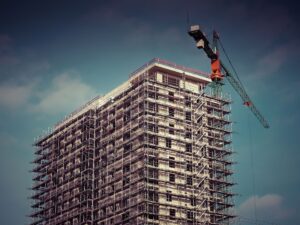With over 4.3 million leasehold properties in the UK according to the latest figures by the ‘The Ministry for Housing, Communities and Local Government’ (MHCLG), it’s no wonder the question of whether you should buy a leasehold property comes up.
We are contacted by prospective purchasers regularly not only to discuss our block management services but to find out more about the leasehold sector in general and the pros/cons of what they are buying.
We thought it wise to, therefore, put down a list of the advantages and disadvantages of buying a leasehold property, what to look out for, and how it may be a hugely beneficial investment.
Disadvantages
When buying a flat, make sure the seller has paid all outstanding service charges
Service charges and all charges made to the property are invoiced, for that reason, to the leaseholder. it’s essential that you carefully review any outstanding amounts due, as well as when the next invoices are going to be raised. If there are outstanding balances on the account and no agreement has been made by the seller to cover these costs, you may be left with the debt!
You are really buying the right to occupy a space for a long time
This is a typical query we face from leaseholders, so we thought it best to clear up any confusion once and for all.
When you are buying a leasehold property, you are buying a legal document (the lease) which gives you the right to occupy the space within the building (i.e. the flat) for a certain period of time (the lease length) along with all agreeing to all of the clauses within the lease.
You do not own the brickwork, the building or surrounding areas as a leaseholder…..you simply own the lease.
You may be charged a fee if you want to rent out your flat
Whilst not in every lease, it is typical that you will need to obtain permission from the Freeholder if you wish to rent out your flat.
This permission can take many forms from a simple co-signed document to a formal licence to sublet. With a formal licence, the Freeholder and the agent can send you an invoice to cover their administrative expenses for the preparation and completion of the licence. Be wary and carefully review the wording in your lease.
The building insurance won’t cover damage to the contents within your flat
Another issue that is frequently questioned by our leaseholders is what the building insurance, payable through the service charge, actually covers. It’s easier to state what it doesn’t cover which will include items such as your contents, furniture, carpets, wardrobes, etc. It’s s essential that you speak with your managing agent to discuss what isn’t covered so you can get adequate coverage elsewhere.
You may have to contribute towards expensive major refurbishment works
Within the lease terms, it is typical to find a clause pertaining to the obligation to internally and externally refurbish or maintain the communal areas of the building.
Certainly, in many of our buildings, these works can total anywhere from £100,000 to over £3,000,000. This total is then to be split by all the flats that contribute so it’s worthwhile finding out:
- Exactly when the next round of refurbishment work is due to be undertaken
- If there is any reserve fund already built up
- The likely cost of the works, so you can effectively budget
The last thing you want is an invoice for £10,000 + being sent to you out of the blue!
You may not be able to alter your property after you own it
We understand that after you buy your leasehold property you may want to make some alterations to the layout or the flooring, to make it feel like your home. In most leases, however, there is a clause restricting leaseholders from altering the leasehold property without a formal licence from the freeholder first.
Similar to the subletting issue, you may be required to enter into a formal licence to alter, which may incur further costs from lawyers, the freeholder, and the freeholder’s surveyor, to name but a few.
We strongly suggest you check the lease wording for this clause as you may be in breach of the lease terms if you alter the leasehold property without the formal permissions to do so.
If you wish to keep a pet, you might need a licence to do so
As with subletting and altering the leasehold property, there may also be a clause within the lease regarding the keeping of pets.
We have seen it all, from a blanket clause of no pets at any time through to pets are allowed by informal permission from the freeholder.
If you own a pet and are looking to buy a leasehold property it’s worth checking to make sure you are allowed to keep pets…The last thing you want after buying a leasehold is to have to say goodbye to your beloved, legal cases have been fought over this before.
Typically, you can’t run a business from your flat
The attraction of London’s bustling entrepreneurial economy may tempt you to start a business or run your business from your leasehold property. Unfortunately, we have some bad news for you.
In most leases, the flats can be used for residential purposes only. Running any kind of business operations from the property may be in breach of the lease.
You may be liable for a separate Ground Rent charge in addition to the service charge
With the final disadvantage of buying a leasehold property, we thought it wise to warn you about the small but ever-increasing additional charge that typically comes with owning a leasehold property.
Granted, not every leasehold property is subject to a Ground Rent charge but a large number are so its best to check not only the amount and frequency but also the terms ground rent reviews. Ground Rents, in general, have been subject to much criticism and review by the government but you may still be liable to pay them.
Advantages
It isn’t all doom and gloom, there can be huge upsides to buying a leasehold property, here are a few positive facts to leave with you:
You are likely to have better amenities than a freehold house
More common in larger modern developments, these tend to have incredible facilities. You typically find full-size gymnasiums, which tend to be free or close to free for residents.
Other amenities include indoor/outdoor swimming pools and secured private car parking ( a luxury in central London). Some developments even have roof terraces, cinema rooms, libraries, and spas. With all of these amenities all on your doorstep, it is hard to see a downside.
Typically, there will be better security systems in place
In many modern leasehold developments, there is a range of security measures in place from gated electronic entrances, to fill 24 hours / 7 days per week concierge.
These are all facilities rarely available for Freehold houses ensuring that your leasehold property is entirely secure and safe for you, your family and/or your tenants.
More affordable in city locations than a house
In a direct comparison, leasehold properties tend to be much more affordable and accessible to buy than their comparative freehold house in the same area. Whilst this may not be the case in all circumstances, it tends to be the case in London giving you much better value for your money, potentially leading to a larger financial return when you decide to sell.
Costs split with your neighbours rather than paying the total costs
This is a simple case of division. When you own a leasehold property if the roof is damaged the cost is typically divided by the number of flats within the building that contribute.
When you own a freehold house, there is one roof and one of you, so the entire bill for its repair is solely down to you. As the saying goes, there is ‘safety in numbers’ so you don’t end up paying the entire invoice for repairs and maintenance which softens the blow.
Do you still have some questions?
Our team here at Strangford Management bring together over 40 years of experience managing buildings in London. We understand that buying a leasehold property is a complex decision.
We are happy to answer any more questions you may have. Simply send us your questions and we’ll get back to you.




